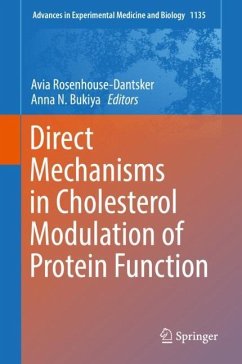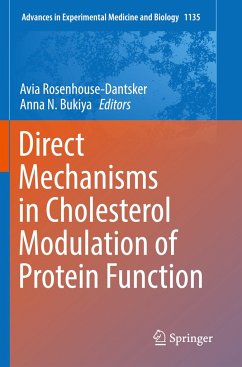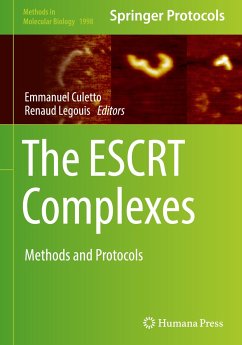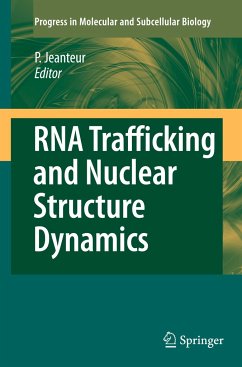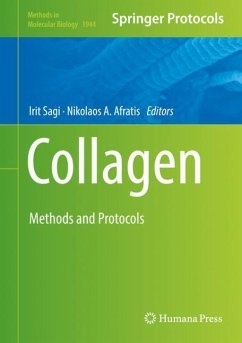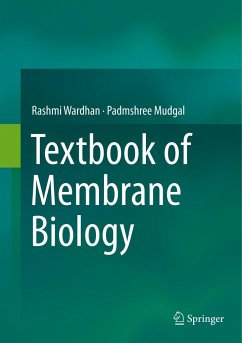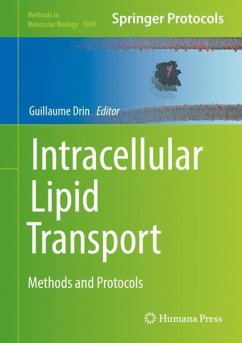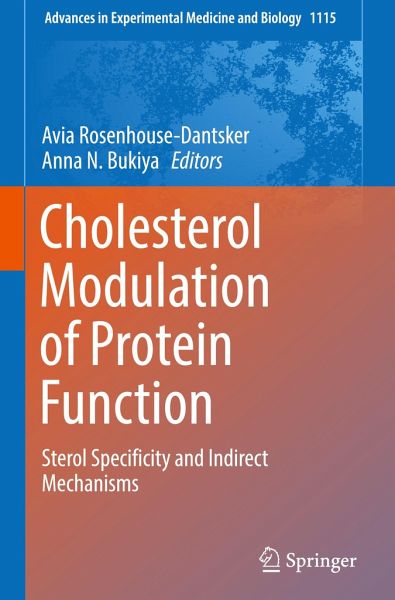
Cholesterol Modulation of Protein Function
Sterol Specificity and Indirect Mechanisms
Herausgegeben: Rosenhouse-Dantsker, Avia; Bukiya, Anna N.

PAYBACK Punkte
61 °P sammeln!
In this book, renowned scientists describe the role of steroid chirality and modification of lipid membrane physical properties in the modulation of G protein-coupled receptors and ion channels. The application of commonly-used technical approaches such as mass spectrometry and nucleic magnetic resonance transfer spectroscopy for studies on cholesterol distribution and alteration of lipid bilayer characteristics is also discussed. This book offers comprehensive insights into the current understanding of cholesterol-driven modulation of protein function via mechanisms that extend beyond lipid-p...
In this book, renowned scientists describe the role of steroid chirality and modification of lipid membrane physical properties in the modulation of G protein-coupled receptors and ion channels. The application of commonly-used technical approaches such as mass spectrometry and nucleic magnetic resonance transfer spectroscopy for studies on cholesterol distribution and alteration of lipid bilayer characteristics is also discussed.
This book offers comprehensive insights into the current understanding of cholesterol-driven modulation of protein function via mechanisms that extend beyond lipid-protein direct interactions. In the first part, the chapters introduce the reader to the use of the chemical derivatives of cholesterol as a valuable laboratory tool in the studies of cholesterol-driven modulation of protein function. In the second part, examples of cholesterol-induced changes in membrane physical characteristics are presented and discussed in light of their multifaceted contribution to the effect of cholesterol on protein function.
The book will be of interest to undergraduate and graduate students as well as basic science and medical researchers with a keen interest in the biophysical properties of cholesterol and physiological consequences of cholesterol presence in biological systems.
This book offers comprehensive insights into the current understanding of cholesterol-driven modulation of protein function via mechanisms that extend beyond lipid-protein direct interactions. In the first part, the chapters introduce the reader to the use of the chemical derivatives of cholesterol as a valuable laboratory tool in the studies of cholesterol-driven modulation of protein function. In the second part, examples of cholesterol-induced changes in membrane physical characteristics are presented and discussed in light of their multifaceted contribution to the effect of cholesterol on protein function.
The book will be of interest to undergraduate and graduate students as well as basic science and medical researchers with a keen interest in the biophysical properties of cholesterol and physiological consequences of cholesterol presence in biological systems.



